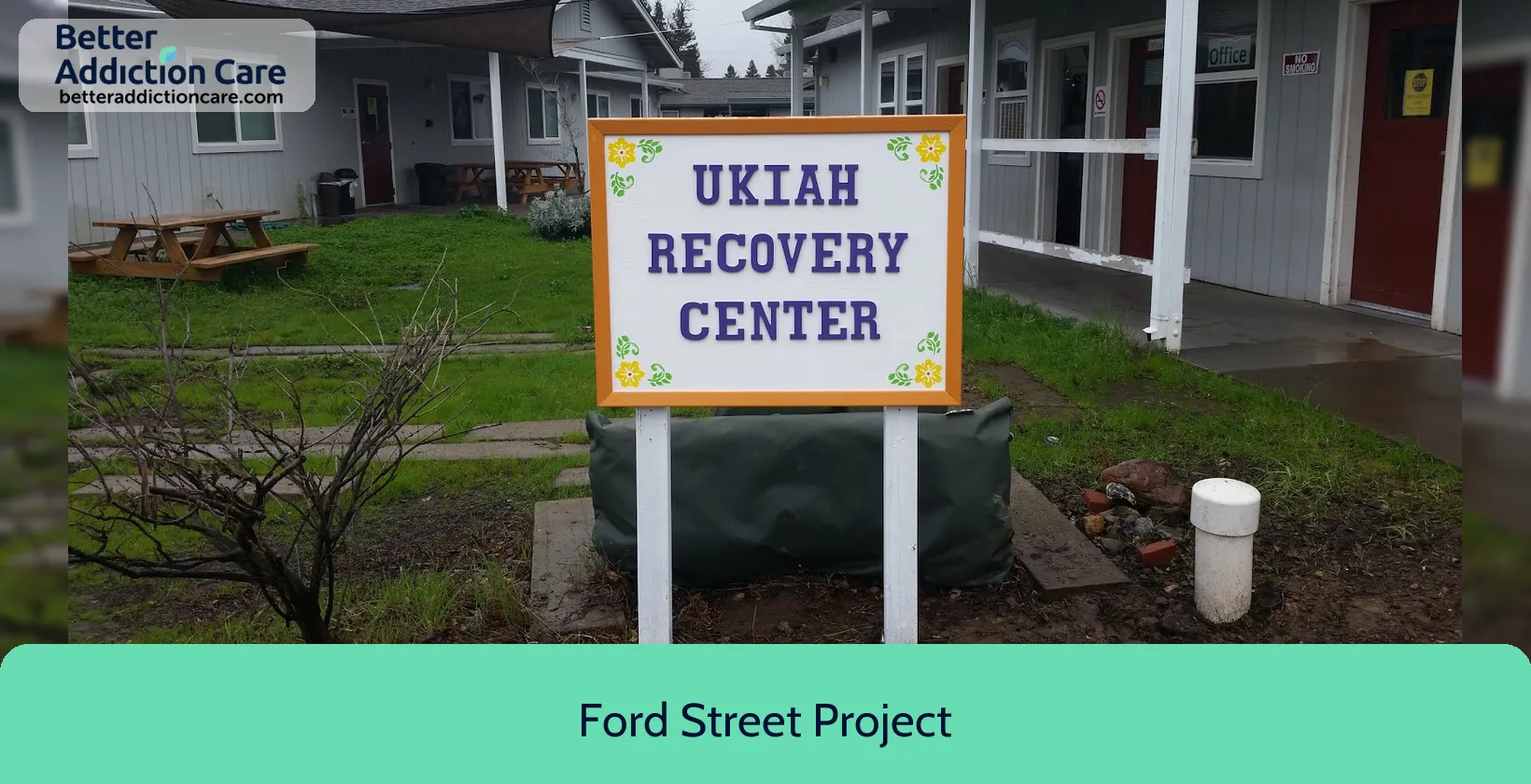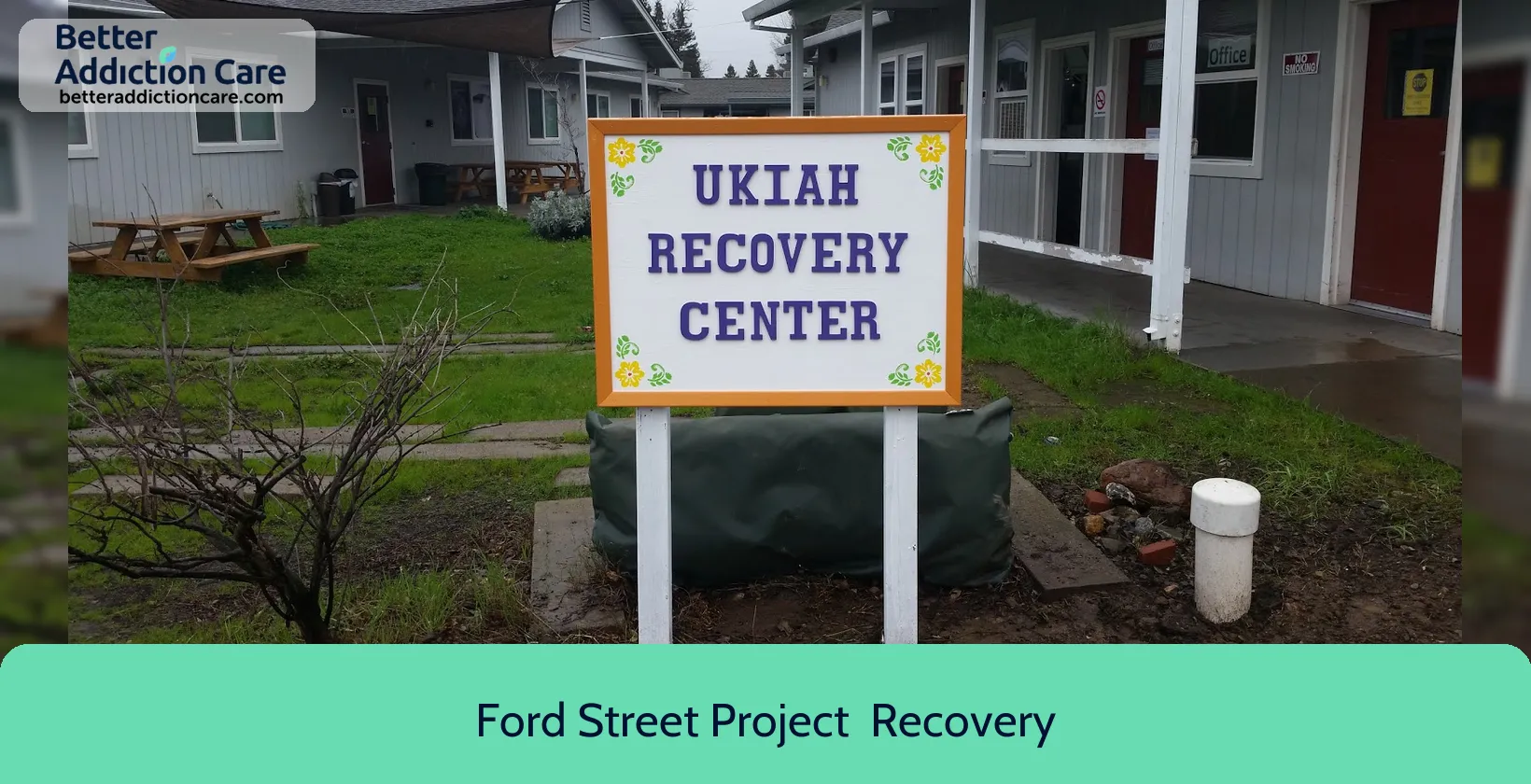Ford Street Project - Recovery Center
Overview
Ford Street Project - Recovery Center is a substance abuse treatment center for people seeking treatment near Mendocino County. As part of their treatment modalities for recovery, Ford Street Project - Recovery Center provides cognitive behavioral therapy, substance use disorder counseling, and group counseling during treatment. Ford Street Project - Recovery Center is located in Ukiah, California, accepting cash or self-payment for treatment.
Ford Street Project - Recovery Center at a Glance
Payment Options
- Cash or self-payment
- Medicare
- State-financed health insurance plan other than Medicaid
Assessments
- Screening for tobacco use
- Comprehensive substance use assessment
- Outreach to persons in the community
- Screening for substance use
Age Groups
- Young adults
- Adults
Ancillary Services
- Case management service
- Social skills development
Highlights About Ford Street Project - Recovery Center
6.74/10
With an overall rating of 6.74/10, this facility has following balanced range of services. Alcohol Rehabilitation: 8.00/10, Drug Rehab and Detox: 6.00/10, Insurance and Payments: 6.00/10, Treatment Options: 6.97/10.-
Alcohol Rehabilitation 8.00
-
Treatment Options 6.97
-
Drug Rehab and Detox 6.00
-
Insurance and Payments 6.00
Accreditations
State department of health:

State Licenses, issued by government agencies, authorize rehabilitation organizations to legally operate within designated geographical areas. The specific licenses required for operation are typically determined by both the nature of the rehabilitation program provided by the facility and its physical location.
Treatment At Ford Street Project - Recovery Center
Treatment Conditions
- Alcoholism
- Substance use treatment
Care Levels
- Hospital inpatient treatment
- Short-term residential
- Long-term residential
- Residential detoxification
- Aftercare
Treatment Modalities
- Cognitive behavioral therapy
- Substance use disorder counseling
- Group counseling
- Intervention Services
- Contingency management/motivational incentives
Ancillary Services
Additional Services
- Pharmacotherapies administered during treatment
- Mentoring/peer support
- Breathalyzer or blood alcohol testing
Get Help Now
Common Questions About Ford Street Project - Recovery Center
Contact Information
Other Facilities in Ukiah

7.39

6.65
DISCLAIMER: The facility name, logo and brand are the property and registered trademarks of Ford Street Project, and are being used for identification and informational purposes only. Use of these names, logos and brands shall not imply endorsement. BetterAddictionCare.com is not affiliated with or sponsored by Ford Street Project.

